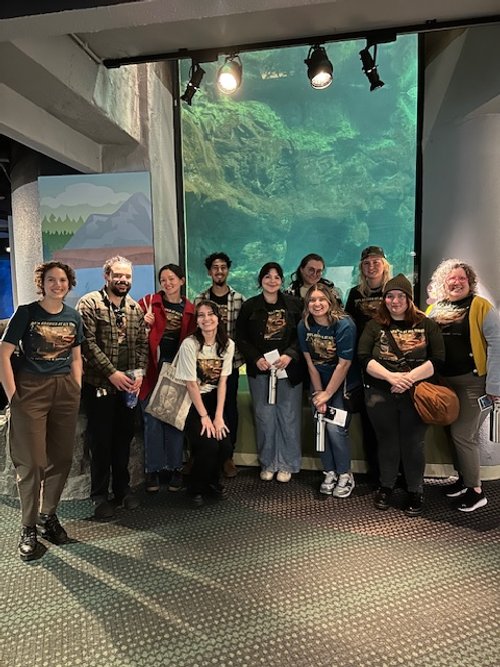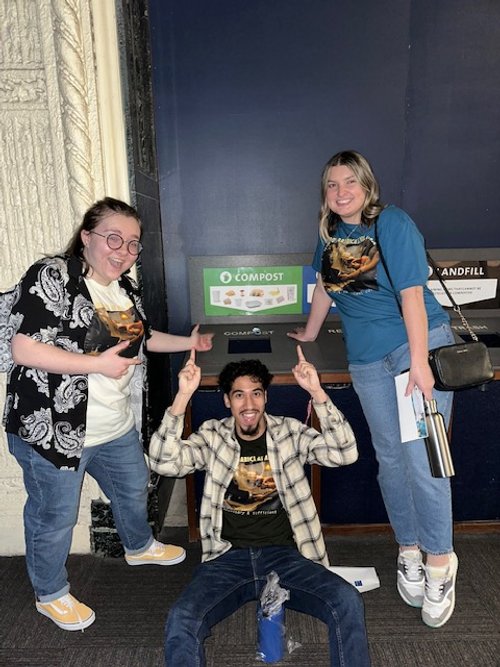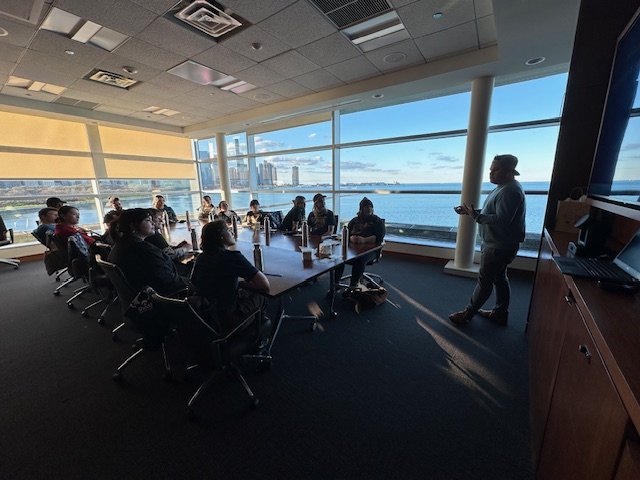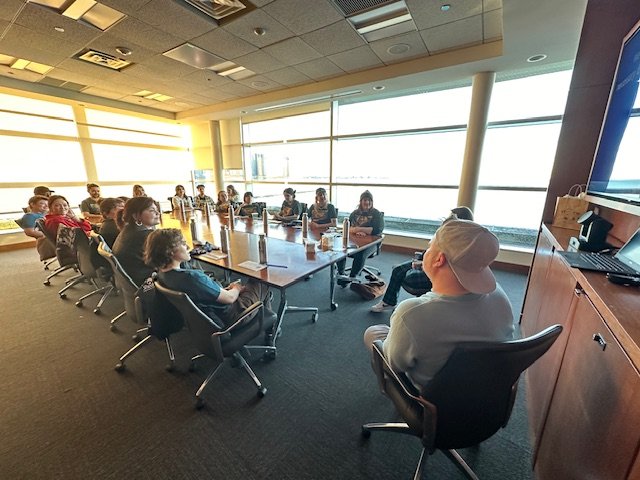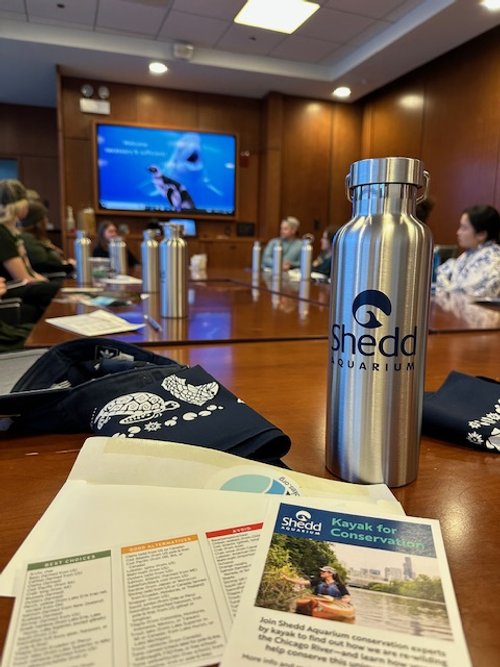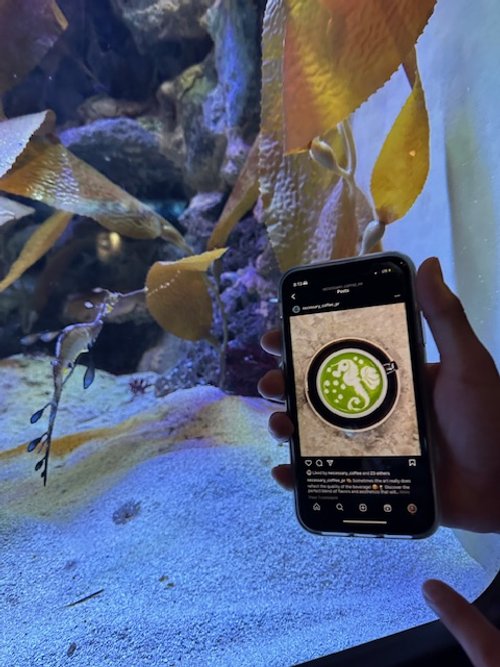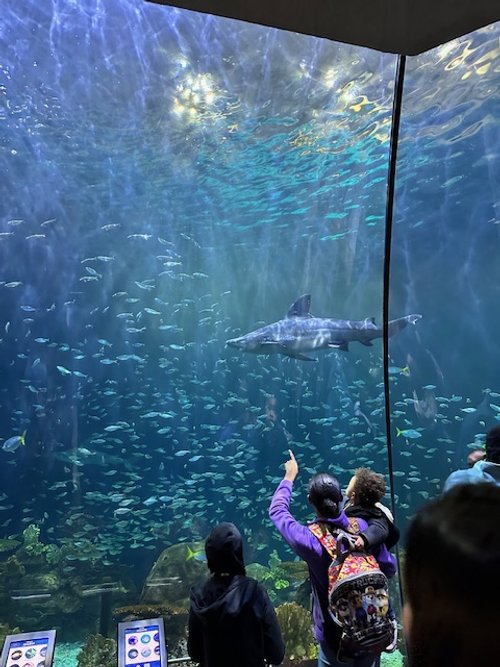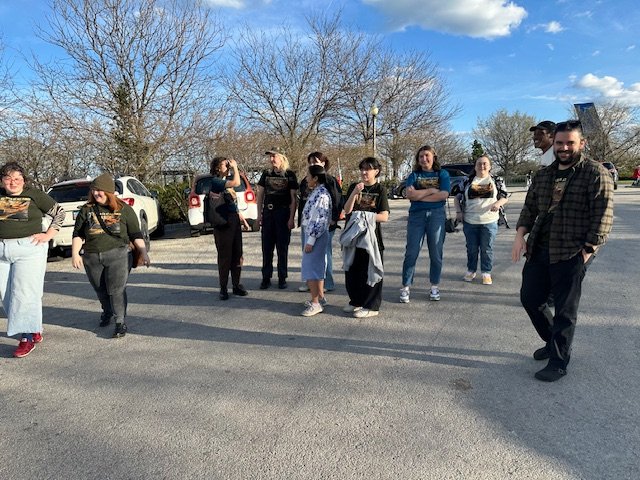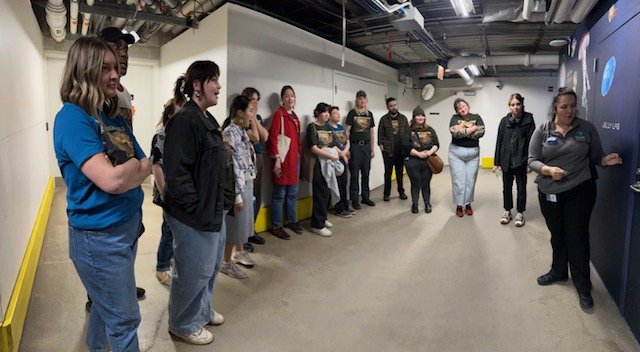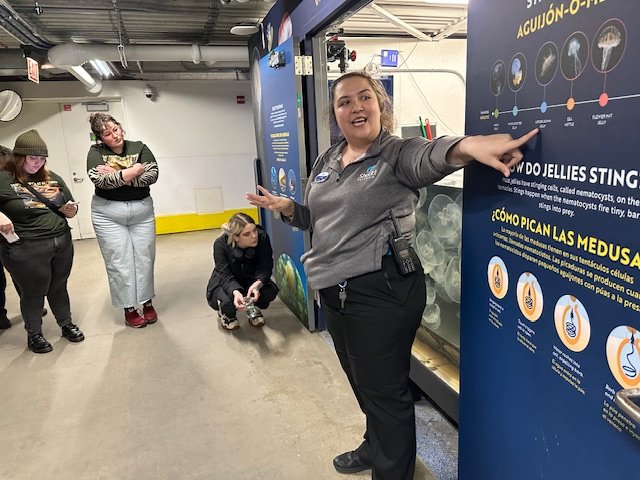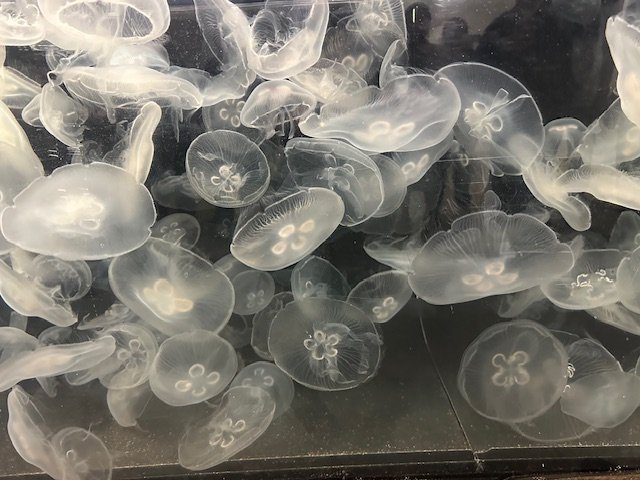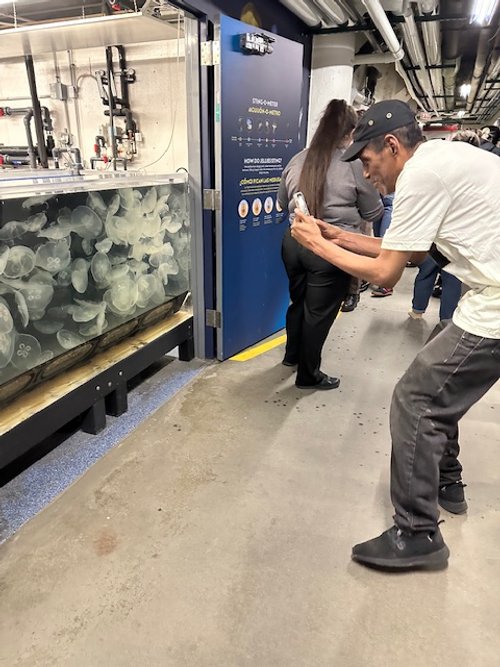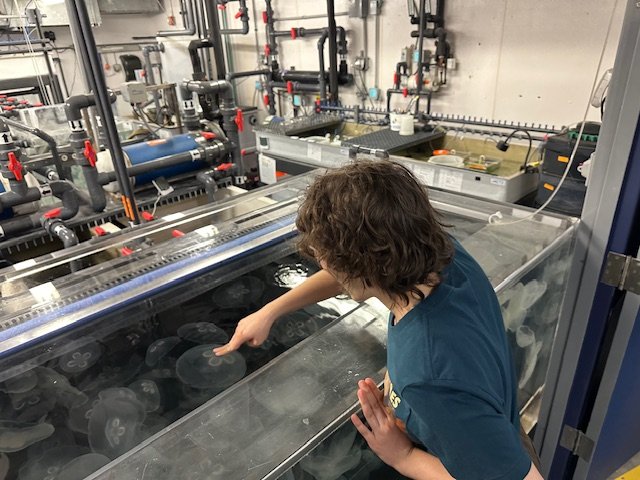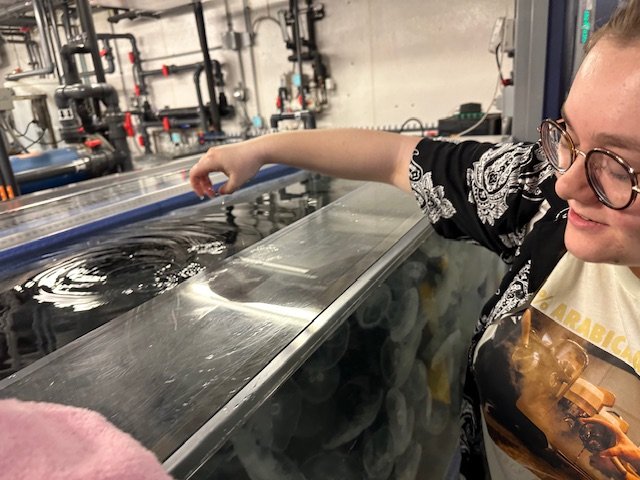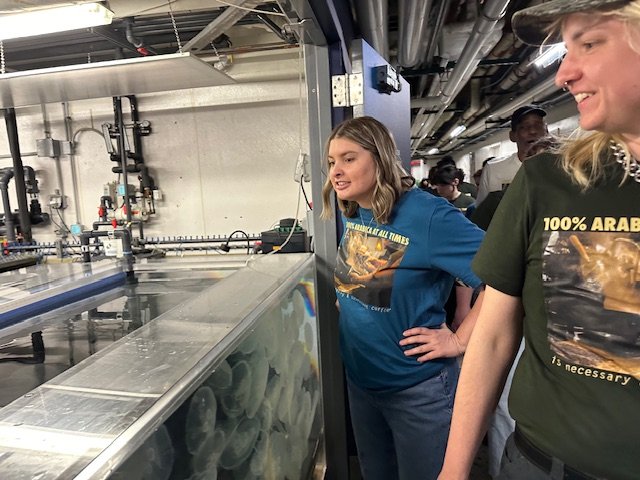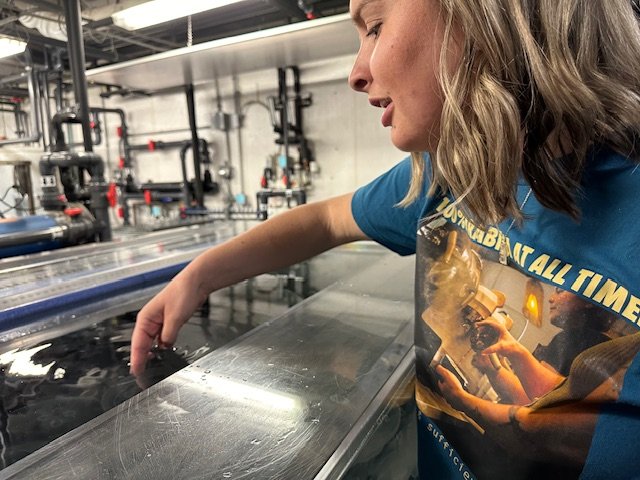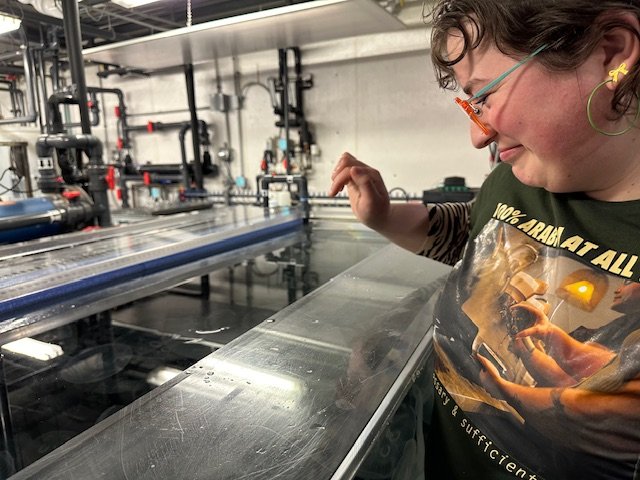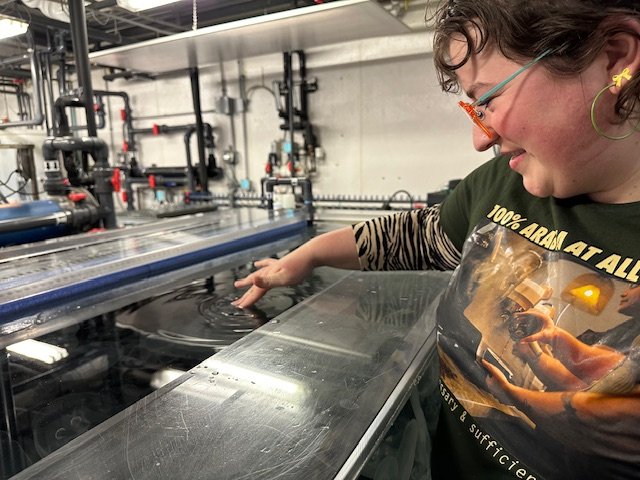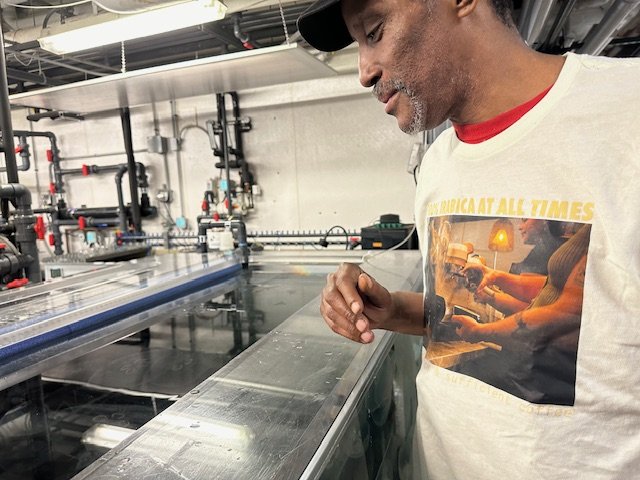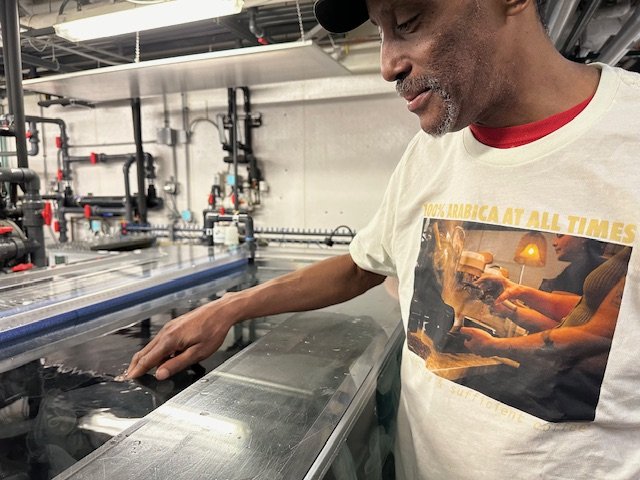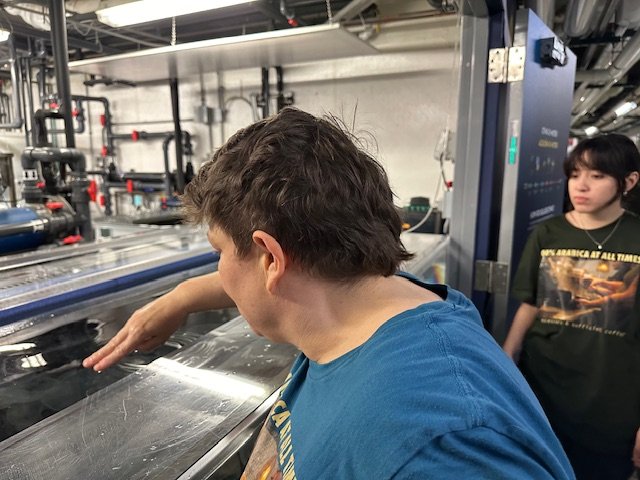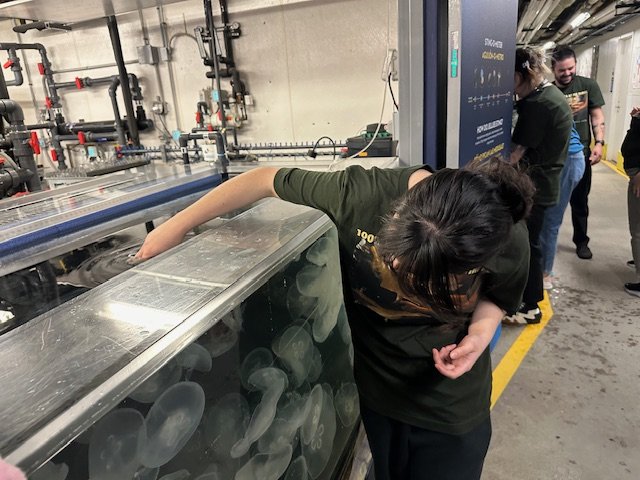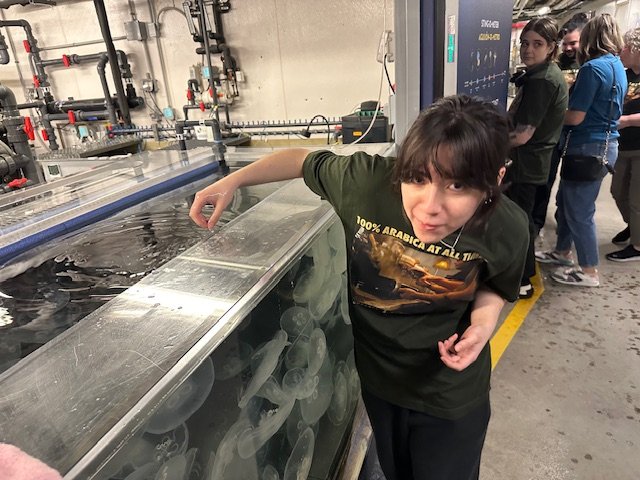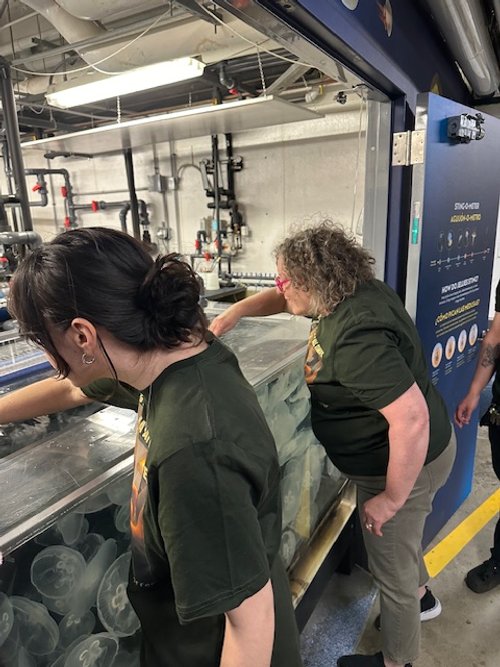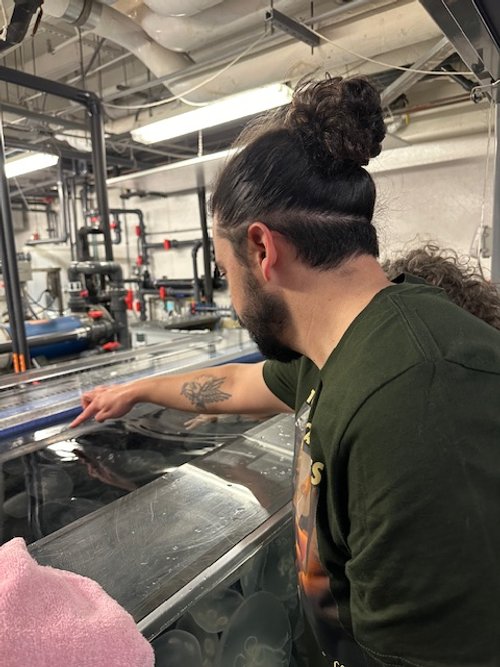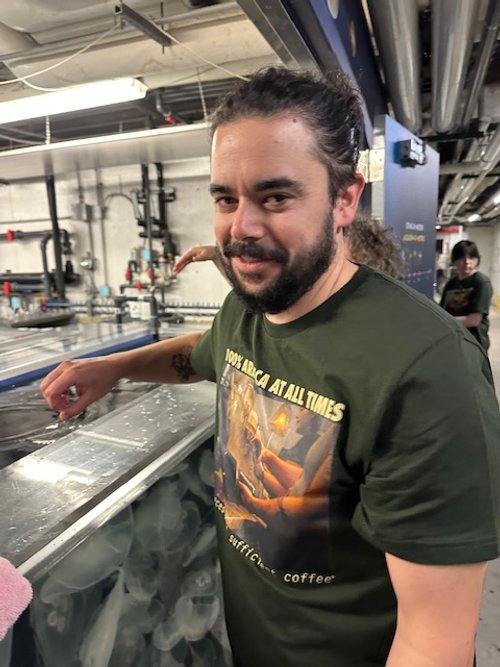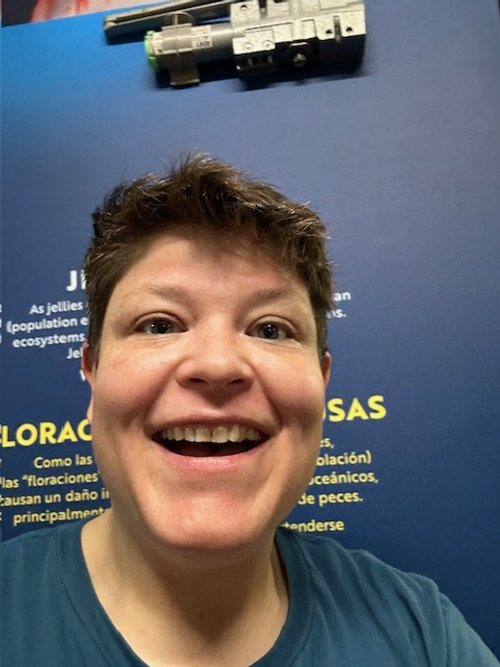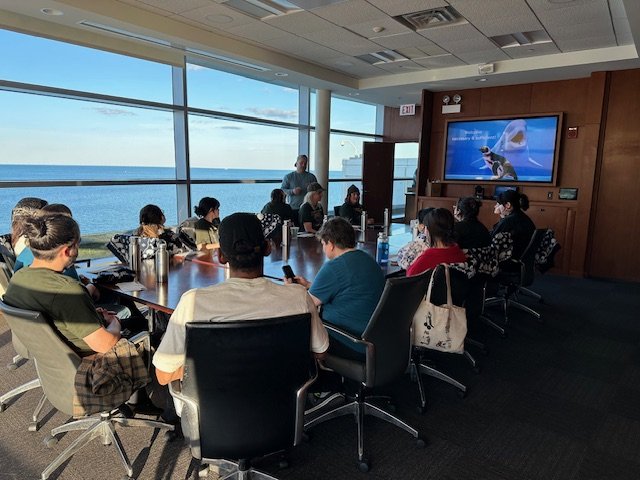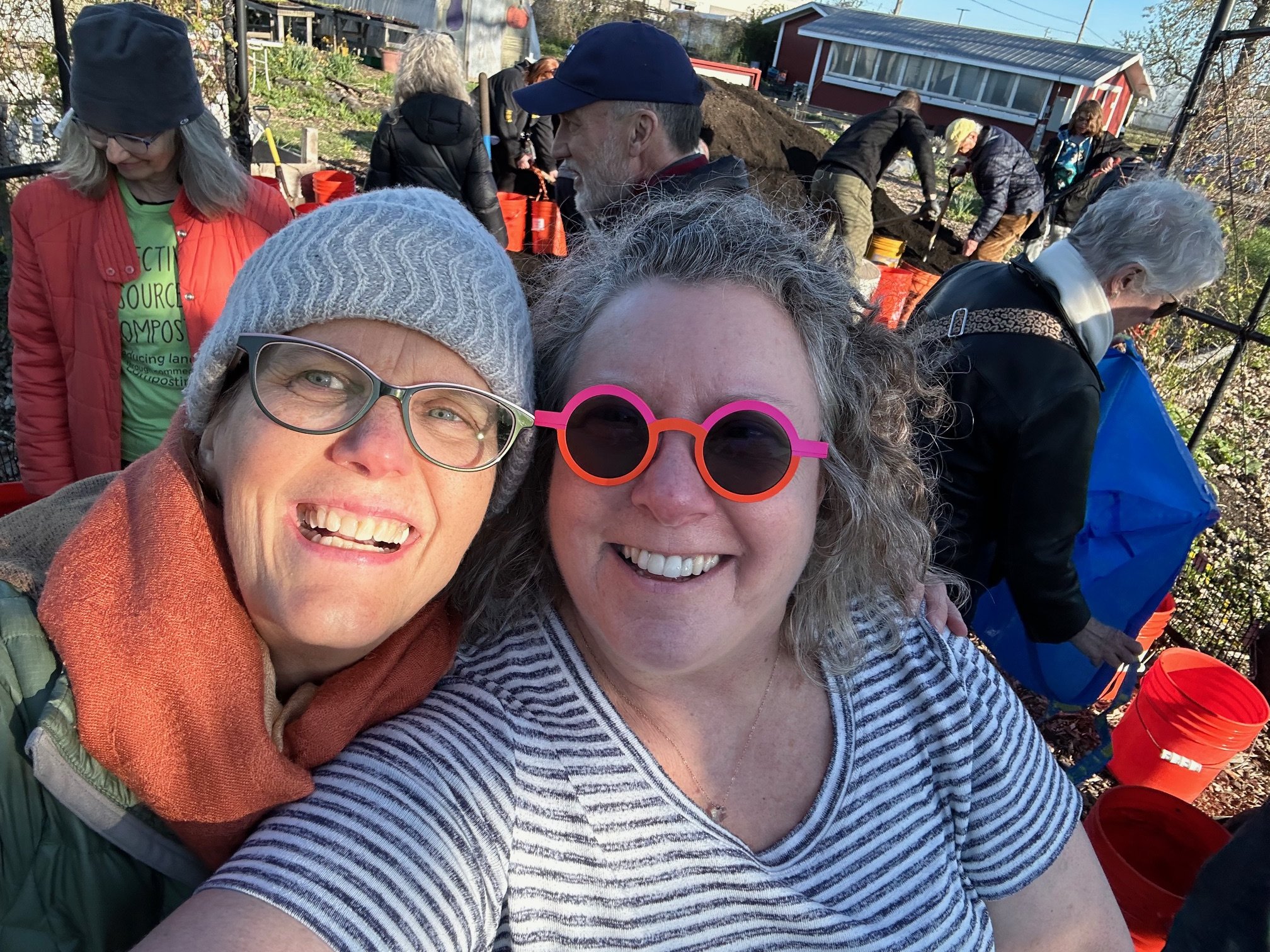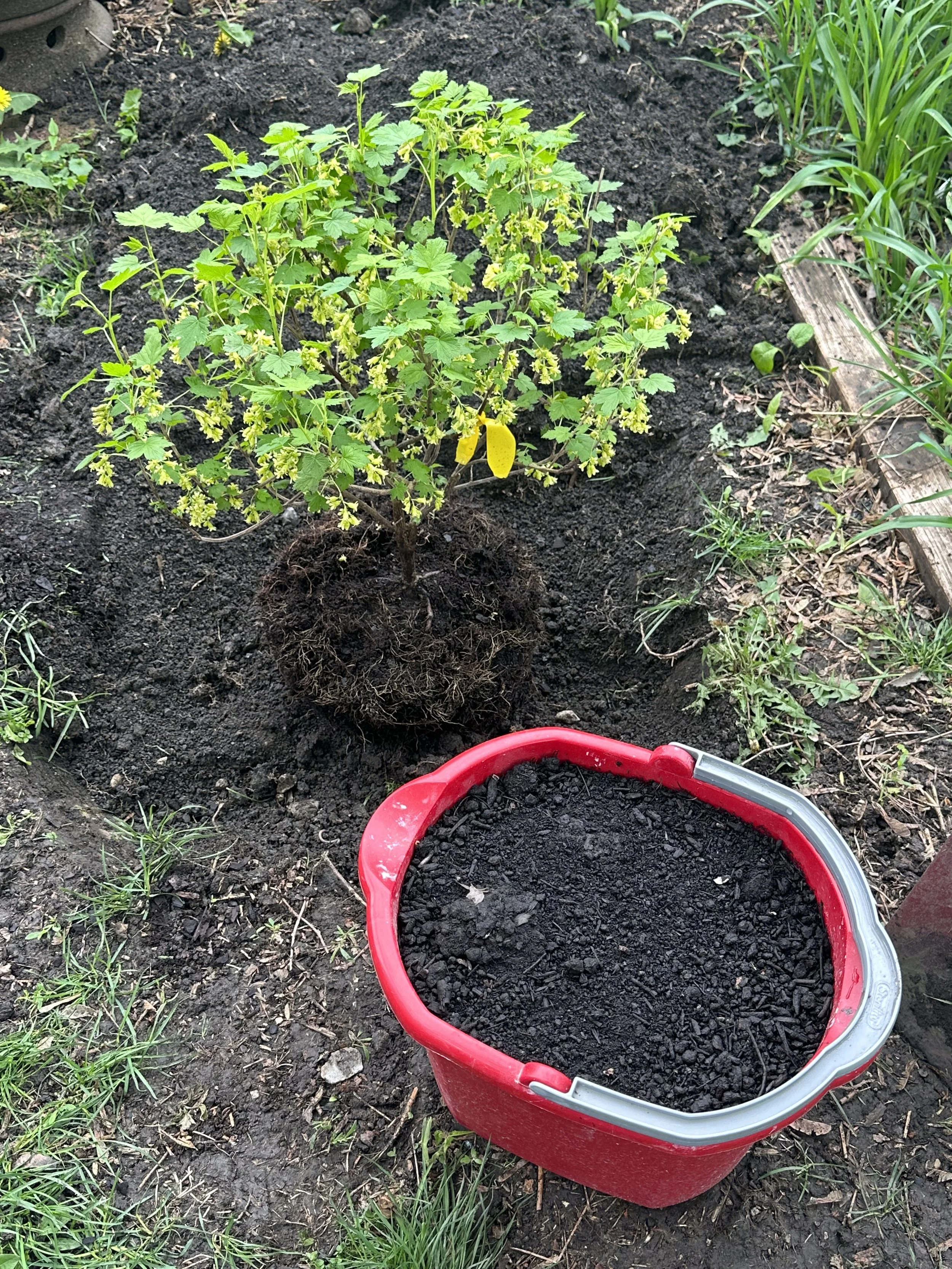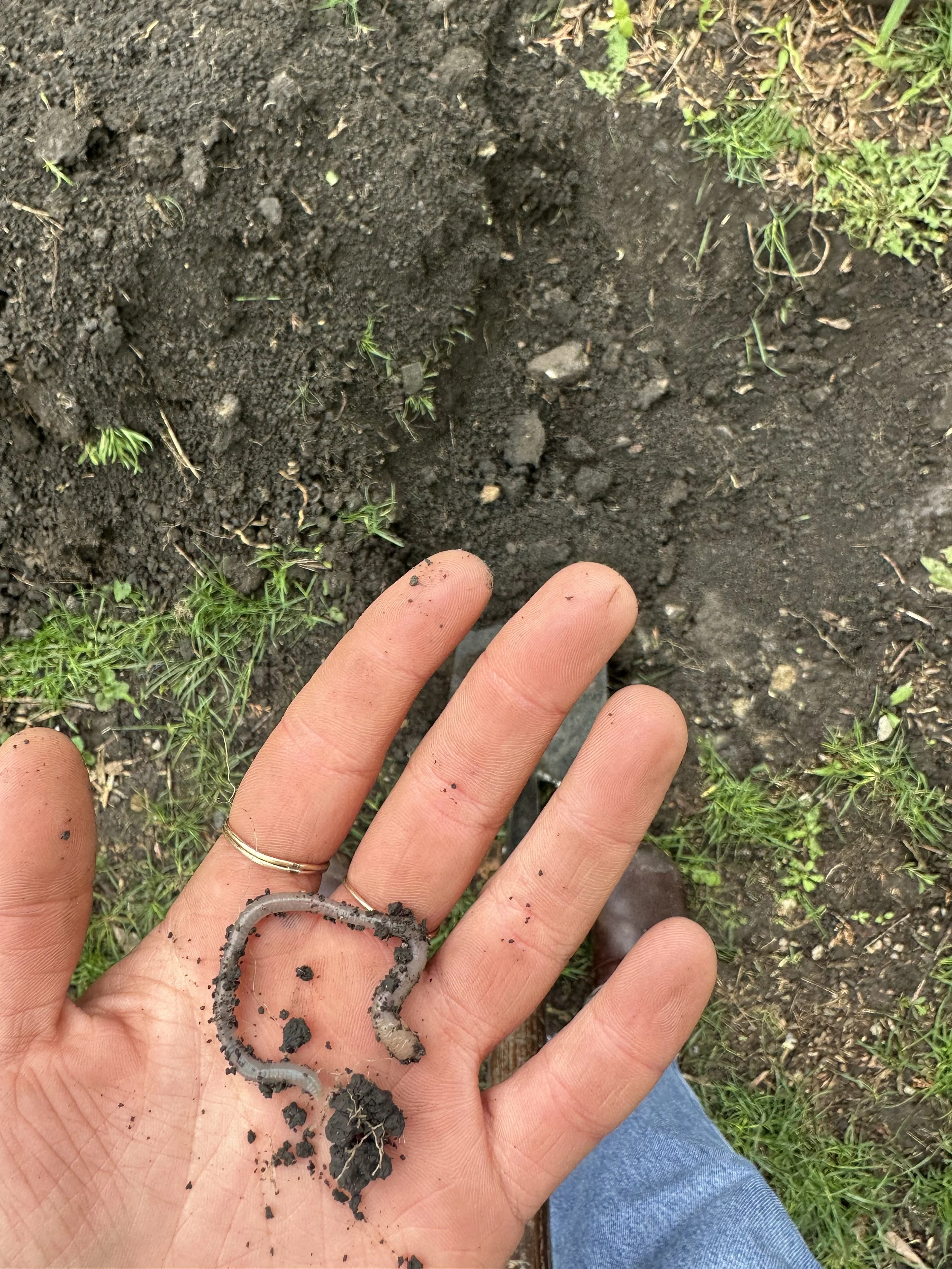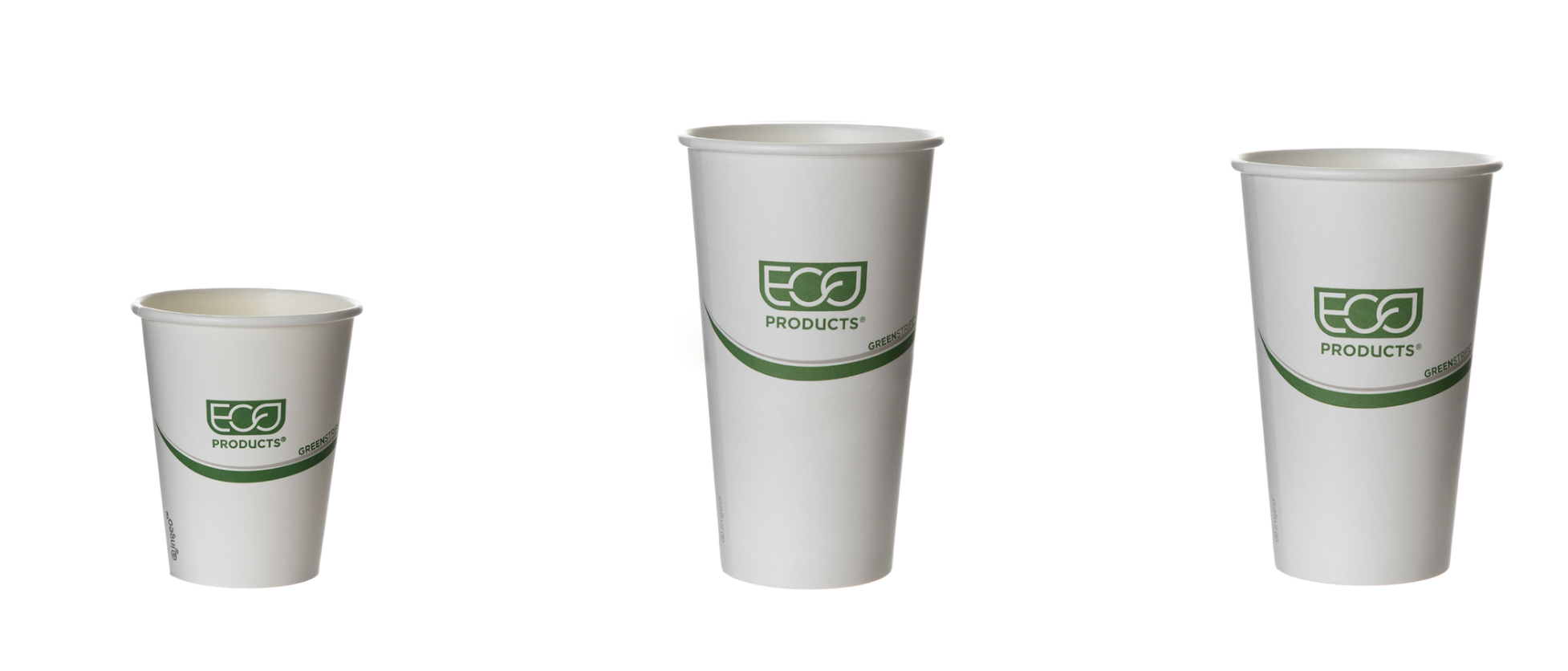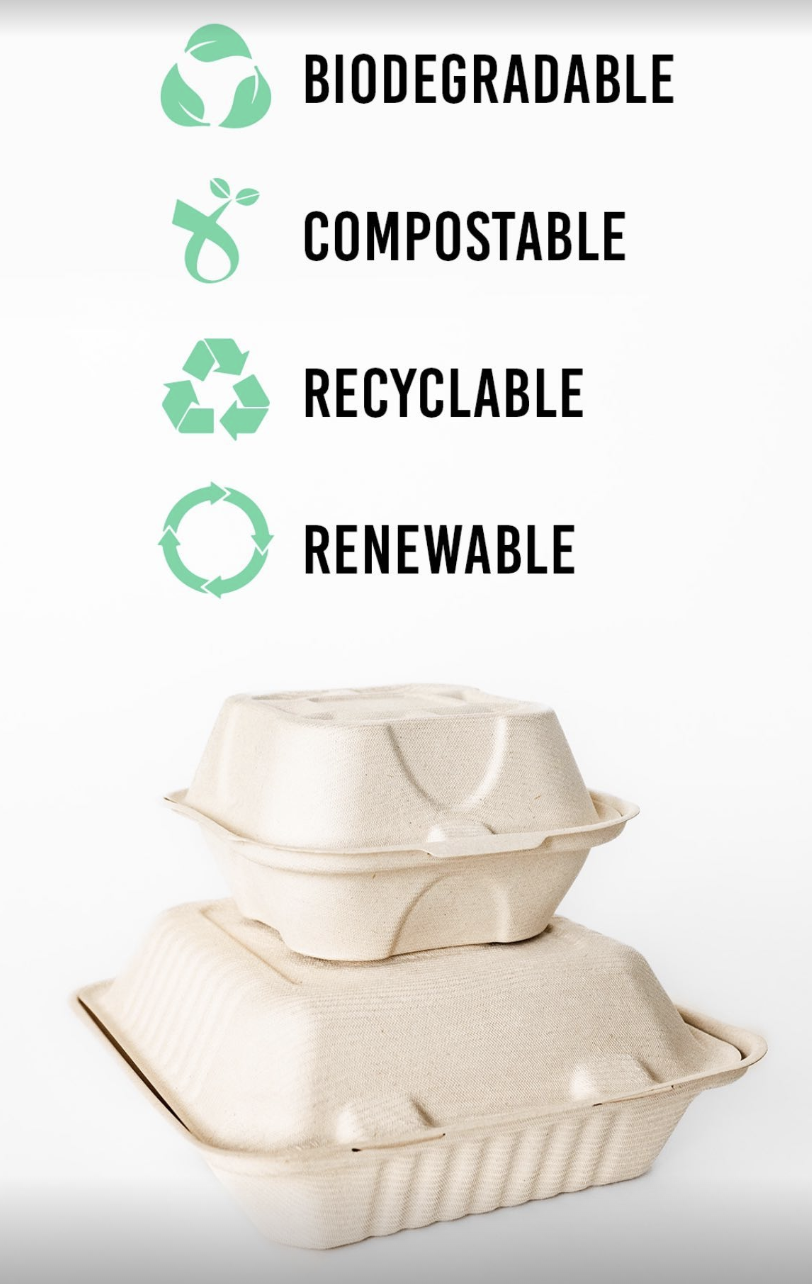Sustainability with Shedd Aquarium
Arriving at the loading doc!
We’re so proud to be partnered with the Shedd Aquarium in the Let’s Shedd Plastic program. During the time we’ve been partnered I’ve spoken on a panel, we’ve participated in park clean up, and most recently our entire staff was provided a behind-the-scenes tour of the Shedd…
Why are we so focused on Sustainability?
So, sustainability holds significant importance to us due to its enduring impact on our environment and communities. By prioritizing sustainable practices, we strive to contribute positively to the world around us, forging a harmonious balance between business growth and environmental stewardship. This commitment ensures that we can continue to enjoy the planet's resources for generations to come, fostering a sustainable future for all.
What does it mean for us to say “We’re a Sustainably Focused Company?”
Sustainability encompasses various aspects such as environmental, social, and economic factors. It is a concept that involves meeting the needs of the present without compromising the ability of future generations to meet their own needs. Measuring sustainability involves assessing indicators like carbon footprint, resource consumption, social equity, and economic viability. By evaluating these metrics, organizations and societies can gauge their progress towards achieving sustainable practices and make informed decisions for a brighter future.
Sustainability included environmental, social, and economic aspects. To actively engage in sustainability, individuals and businesses can focus on reducing carbon footprints, supporting fair labor practices, and promoting local economies. Each contribution, no matter how small, plays a critical role in creating a more sustainable future for our planet and communities.
Ecological Sustainability
Recently we picked up 40 pounds of compost material made with last year’s compost contribution from our company and many others in the Greater Chicago Area. We partner with Collective Resources Compost Cooperative and (also recently) became coop members!
We’re so proud that, with your participation and support, we have already diverted over 45,000 pounds from landfill to healthy soil! and excited to see it come full circle. our Sustainability Lead, Sarah W, used our new compost to plant a black current bush in the back yard of our LGNSQ cafe! The bush that was planted came from a local growers coop and is native to our area.
It’s also why all of our products are compostable, biodegradable, or recycleable. (and we’ll get to recycling in a minute) Like agave straws and cutlery, to bamboo clamshells and PLA - a corn based product that breaks down when commercially composted.
We’re proud to be Blue Certified with Oceanic Global
Oceanic Global inspires us to care deeply for the ocean and provides solutions to protect it. The international NGO sheds light on humanity’s essential relationship to the ocean and empowers individuals, communities, and industries to create positive change. Oceanic Global creates educational experiences, consults on sustainable operations, and engages local communities to generate measurable impact for our collective wellbeing.
We went through a rigorous process to become certified and we’re going through it again now. Here’s a link to their restaurant guide. I’m really excited to be working with the Director of Blue to create a Chicago Guide and to
Sustainable doesn’t start and end with the ecology…although that’s a very important piece of it.
Sustainable doesn’t start and end with the ecology; rather, it encompasses a broad spectrum of considerations that extend beyond environmental impact. While ecology is a crucial aspect of sustainability, other factors such as social responsibility, economic viability, and ethical practices play integral roles in fostering a truly sustainable approach. By addressing these diverse elements collectively, we can cultivate a more holistic and resilient framework for sustainable development.
So how can a neighborhood cafe be involved in something as grand as Social Sustainability?
So how can a quaint neighborhood cafe actively participate in initiatives as significant as Social Sustainability? Operating as a community-oriented space, it can promote inclusivity through various events, support local suppliers to bolster the economy, and implement eco-friendly practices to reduce its environmental impact. Through these actions, the cafe can contribute positively to the social fabric of its surroundings while inspiring others to follow suit.
Art and Social Change involve the use of creative expressions such as visual arts, music, dance, and literature to address social issues, provoke dialogue, and inspire action. Artists who engage in this practice aim to raise awareness, challenge norms, and promote positive transformations within society. By harnessing the power of art, individuals and communities can come together to advocate for justice, equality, and meaningful change. Through art exhibitions, performances, workshops, and community projects, artists contribute to shaping a more inclusive and compassionate world.
Can the concept of placemaking in art encompass not only artistic creations but also serve as a catalyst for social change? By integrating the principles of community engagement and cultural expression into the physical environment, artwork can transcend its aesthetic value to become a powerful agent for positive transformation in society. Through fostering a sense of belonging and encouraging dialogue among diverse groups, art-driven placemaking initiatives have the potential to address pressing social issues, spark critical conversations, and promote collective action towards a more equitable and inclusive community. This intersection of art and social change exemplifies the dynamic role that creativity can play in shaping our understanding of place and driving meaningful progress in the world.
A cafe can resemble a form of placemaking in art by serving as a communal space where individuals from diverse backgrounds come together to engage in meaningful interactions, share stories, and create connections. Just as art can evoke emotions and spark conversations, a cafe can foster a sense of belonging and unity among its patrons, turning it into a dynamic social canvas where each person contributes to the vibrant tapestry of community life. It's within these shared moments that the simple act of enjoying a cup of coffee transcends its basic function to become a medium for cultivating relationships, nurturing creativity, and embodying the essence of human expression in a tangible, everyday setting.
For example: Trouble Coffee in San Francisco started as a small neighborhood spot but soon became much more than just a place to grab a cup of coffee. Over time, it transformed into a hub for destigmatizing mental illness and fostering a sense of connection within the community. Through various initiatives and a welcoming atmosphere, Trouble Coffee has managed to create a space where individuals feel accepted, supported, and understood, making a significant impact on those struggling with mental health challenges in the area. And I bet you didn’t know that Trouble Coffee is the origin of Avocado Toast!
And now we have a Parklet! (Thank you D.O.T.!)
A parklet or a curbside seating area can contribute to social sustainability in a community by providing a gathering space for people to interact, connect, and build relationships. These communal areas offer opportunities for individuals to engage in conversations, share experiences, and create a sense of belonging within the neighborhood. By encouraging social interactions and fostering a sense of community, parklets and curbside seating areas can help strengthen social ties, promote inclusivity, and enhance the overall well-being of residents.
A connected community is fundamental to promoting overall well-being within a locality. By fostering strong relationships and open communication among its members, a community can effectively address health issues collectively, provide support in times of need, and create a sense of belonging that positively impacts mental and emotional health. When individuals feel connected to those around them, they are more likely to engage in behaviors that promote physical wellness, leading to a healthier and happier community as a whole.
Social sustainability means giving all people in the community a place to gather or work alone together.
The Third Leg of Sustainability is Economic Sustainability:
We address this by partnering with Living Wage for US, and ensuring our employees are paid a living wage along with comprehensive benefits. This commitment to fair and equitable compensation is a crucial aspect of our overall sustainability efforts, as it supports the financial well-being of our workforce and contributes to the long-term viability of our business.
How can we go further with living wage? We can partner with ethical companies that provide a quality of life mission, and ethical business practices. Partners like Certified B corp Olympia Coffee Roasting Company, Ethereal Chocolate, Rishi Tea, Welly. And we can help our community makers, micro-businesses, women-owned businesses, and minority-owned businesses like Tropicakes, Flourish, Jean Williams Studio, and Mojo Owl
Operating this way also help with our business. According to SCA seminar: The Cost of Training, it costs more that $10,000 to train a barista for their craft, and I can tell you first hand, it’s at least a two-year journey. Pair that with the average cafe turnover rate of 144% and I don’t know how any cafe can stay open. It’s fiscally responsible to be Sustainable, Ecologically, socially, and economically. Our retention rate is currently 35% and we’re working towards a goal of 10%
We want to work in a way that aligns with our values, and sustainabiliity is the right value to embrace, for our ecology, for our community, for our employees and for our business! I hope you agree!

